By Oluwaseye Ogunsanya
The internet and social media are often viewed as the main sources of misinformation due to their rapid and widespread accessibility, leading to a disproportionate focus on them within the information ecosystem, while other contexts or environments of misinformation are overlooked. This was corroborated by a study which revealed that health misinformation is rife in rural Africa, particularly the ones related to COVID-19. The study also revealed that due to the “relatively poor access to information, culture and religion beliefs, political instability, living conditions, and poor health literacy,” there was significant misinformation and anecdotal reports in rural areas.
Limited access to information channels like the internet in rural areas has created a barrier for rural residents to access reliable and evidence-based information. This lack of access makes them susceptible to believing whatever information is popular in their community, as they are unable to discern reliable sources from unreliable ones. This singular act can cause fear and uncertainty and hampers efforts to curb misinformation in rural communities. Hence there is a need to not neglect this critical section of the society because they are home to a substantial proportion of the Nigerian population. The World Bank (2020) estimates that about 98,156,651 million people in Nigeria (49.66% of the entire population) live in the rural areas. It’s why it is imperative for media organisations and stakeholders in the information ecosystem not to deprive rural communities and be more intentional by developing communication strategies and mechanisms that will help in tackling misinformation at the grassroots level.
The foregoing was why FactCheckAfrica embarked on a community outreach last month to conduct sensitization sessions on fact-checking misinformation. This laudable initiative comes at a time when various studies show that rural dwellers are more susceptible to spread misinformation as indicated by a comparative study conducted in six sub-Saharan African countries (Ghana, Kenya, Nigeria, South Africa, Zambia, and Zimbabwe). Another study subsequently indicated that people in rural areas consume and share misinformation at the same rate as those in urban areas. According to the findings of the study, this is due to the limited access (not to technology but to electricity, and sometimes internet networks). It added that people in rural areas are in haste to consume and share any kind of social media information, including fake news. However, individuals in urban areas consume unlimited time and share social media information during their leisure time. This provided them sufficient time to think through a post before sharing it.
This situation is also compounded by high illiteracy and poverty rates at the grassroots level in Nigeria as such FactCheckAfrica deemed it fit as a matter of commitment to blaze the trail in this area by harnessing and leveraging on the use of instructional materials in local languages, people-oriented and traditional communication systems in carrying out the outreach through its partners (individuals and organisations) across different locations in Nigeria which includes Lagos, Osun, Abuja, Imo, Kaduna, Gombe, Sokoto, Borno, Kwara, Jigawa and Oyo.
The outreach which specifically targeted diverse groups, encompassing rural girls, nomadic communities, urban residents, marginalized groups, including women and persons with disabilities aims to empower these communities with the knowledge and skills necessary to critically evaluate information and effectively combat misinformation.
A staggering figure of over 2000 citizens were directly sensitized on fact checking misinformation as a result of the outreach which comprised a series of interactive workshops, presentations, and discussions aimed at actively engaging participants and fostering a deeper understanding of the significance of fact checking. Additionally, key focal points included techniques for identifying misinformation, validating information from reliable sources, and comprehending the potential repercussions of disseminating false information.
The outreach also incorporated innovative methodologies like role-playing, group dialogues, and community discussions; the activities were structured to encourage active participation and enhance knowledge retention among participants through the use of flash cards, murals and art works in their local languages. Similarly, the participants were also encouraged to share personal experiences, pose questions, and collaborate with facilitators to devise practical strategies for combating misinformation within their respective communities.
“Central to the initiative was a commitment to inclusivity and cultural sensitivity, with deliberate efforts to involve marginalized segments of society such as women, youths, and persons with disabilities. By cultivating an inclusive and supportive learning environment, the activities aimed to equip participants with the necessary skills and confidence to become discerning critical thinkers and well-informed decision-makers in their daily lives,” the activity report stated.
The report of the outreach also identified key achievements such as increased awareness and understanding, enhanced critical thinking skills as well as community engagement and empowerment.
“The activities successfully raised awareness among participants about the importance of fact checking misinformation. Participants gained a deeper understanding of how misinformation can affect communities and learned practical skills to verify information.
Through workshops, training sessions, and interactive discussions, participants developed critical thinking skills necessary to evaluate information critically. They learned to discern credible sources from false information, empowering them to make informed decisions. The activities facilitated meaningful engagement with communities, including marginalized groups such as women, youths, and persons with disabilities.
By creating safe spaces for discussions and providing relevant training, the activities empowered participants to become advocates for truth and agents of change within their communities” it reads.
Participants Shares Outstanding Feedbacks
The outreach also recorded some outstanding feedback from participants across the locations visited. One of the participants from Kaduna narrated how misinformation resulted in her brother’s death during the recent crisis in Kaduna. Initially believed that all Christians were her adversaries based on what she had been told, but after the session, she now understands how to fact check information. She expressed relief at being able to conduct her research and verification.

The participants shared instances where misinformation had caused them financial losses and wasted time while another participant from Iresi expressed gratitude for the opportunity to learn about media literacy, stating, “I never realized how easily I could be misled by fake news until attending this campaign. Now, I feel more confident in my ability to discern credible information and make informed decisions.”


Similarly, an indigene of Ede Mosi shared how the campaign had already made a difference in their life.
“After learning about media literacy, I started questioning the information I came across. I used to believe everything I read, but now I take the time to verify before sharing. I feel more responsible and empowered,” he said.
A community member from Oju Eri while reflecting on the impact of the campaign on their community, said, “Before, rumours would spread like wildfire in our town, causing unnecessary panic and confusion. Now, with the knowledge gained from the campaign, we are more cautious about what we believe and share. I believe this will lead to a more united and informed community.”
In Borno, the women were actively engaged in the session as many spoke about cases of misinformation in the camp. The women leader who identified herself as Aisha Usman appreciated the team for organising the project, she also made emphasis on the need that women should be actively sensitized as they play a vital role in the spread of information in the community. While highlighting the effect of similar occurrences in the camp which has led to tension, loss of resources, stigmatization and even bullying which has resulted in many cases of physical combat in the community as some as led to loss of life, property, and threat within the camp vicinity.

“We have been experiencing a lot of tension and fear in the camp because of misinformation as we the women are tools that engage in the spreading of unverified information and this has caused a lot of chaos which resulted in fighting, bullying, and even involve security agencies and even organization working here. I remember last year, I remember the previous camp before coming here, there was a woman who ran to the camp and that there were killing people in the neighbouring communities, this information created fear and tension in us as we continued to run with our children and even our animals and at the end we find out that there was never such occurrence, most of us has lost our belongings, homes and even some even lose their life as a result of shock, I want to appreciate you for bringing up this programme to us in this camp as most of us cannot even operate our phones except to make calls, also no access to verify information, we the women welcome the team for their effort to bring this programme here and we will ensure that misinformation is mitigated, I want to also appeal to you that this programme should be extended, we want you also to extend this to the youth and even the children.” Aisha narrated.

At Waru Community, Apo Abuja, artworks and murals were creatively deployed to sensitize about 100 aged men and women, youths, and children alike on the menace of information pollution, its dangerous impact on individuals and communities, and strategies to verify news before spreading.

During the one-day community sensitization which also featured interactive sessions and thought provoking discussions. Women and girls were particularly equipped with the tools to critically verify information and make informed decisions in a digital age fraught with falsehoods because of their pivotal role in the effort to curb misinformation within their families and communities, thereby promoting a culture of fact checking and information literacy.

Mr. Innocent, a participant at the outreach, acknowledged that he now understands the impact of rumors and fake news on the community, realizing that they can cause war, fight, among other issues, and that before he spreads any news, he must confirm that it’s true. Another participant, Mrs. Doris, claimed she learned how misinformation can destroy families, and she pledged to go and tell others to stop spreading fake news and misinformation.
At Mogaji of Ile-Apa Community, Kwara State, we focused on educating residents of the community, especially the older generation and PWDs, about the dangers of misinformation and equip them with skills to discern credible information from falsehoods.

We also incorporated the use of radio in our outreach as our team appeared on Diamond FM (88.7)’s “Eba wa dasi” programme to further extend our fact-check awareness campaign to a broader audience across the communities.
One of the highlights of the outreach was the extensive empowerment of Ile-Apa residents with knowledge and skills to identify and tackle potential false information through the use of our flashcards in local languages, providing them a step-by-step guidance on identifying and addressing misinformation.

Additionally, we established a team of Community Vanguards, which includes the Alangua of Ile-Apa, Mogaji, Chief Imam, Women representative, and a Hausa-Speaking Representative, to serve as gatekeepers and ensure the accuracy and reliability of information within the community.
Participants were eager to share personal experiences related to misinformation, highlighting cases where false information led to havoc, tension, and unrest within the community. For instance, the Mogaji of Ile-Apa Community recounted an incident during the Ebola outbreak when misinformation caused a family to use concentrated salt for bathing, resulting in hospitalization and community unrest.

The feedbacks from participants were equally positive, with many expressing gratitude for the sensitization, which empowered them to approach information critically and ask questions as outlined in the flashcards. The Mogaji of Ile-Apa Community pledged to integrate discussions on fact checking misinformation into their weekly and biweekly meetings, using the flashcards to educate others in the community.
There is no doubt that this community outreach will go a long way changing the belief systems of many rural dwellers about spreading misinformation if sustained for many years. It will also help in filling the information gap that exists at the grassroots and more effectively combat misinformation. This is a call to media organisations and stakeholders alike to take a cue from FactCheckAfrica in terms of partnership and creating innovative solutions to tackle the menace of misinformation in rural communities in Nigeria.
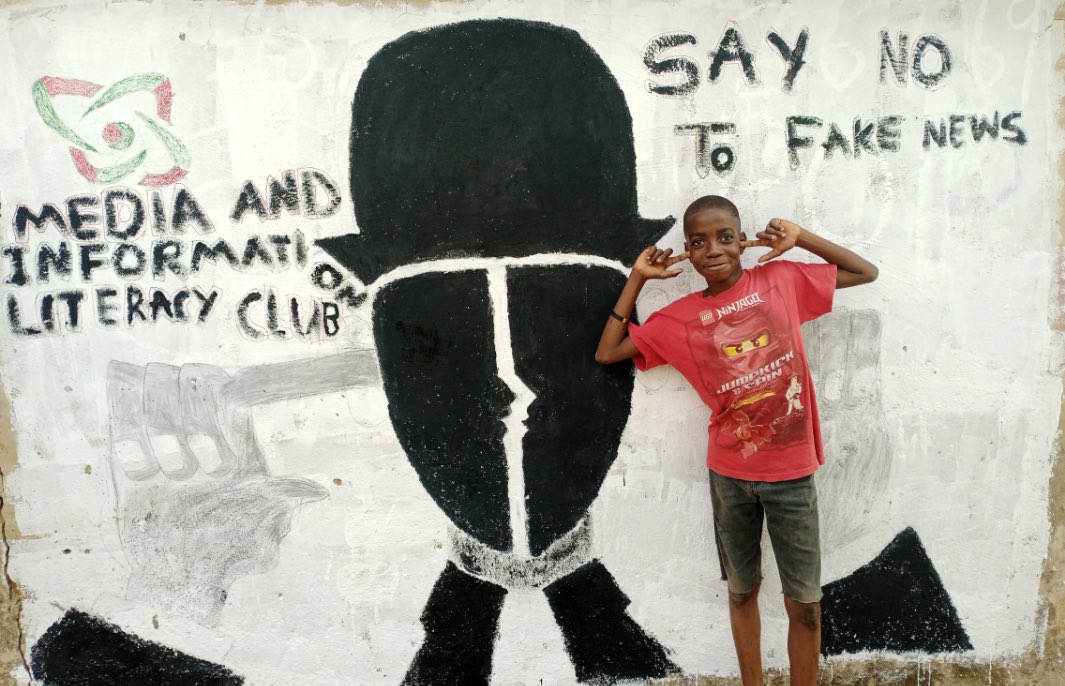
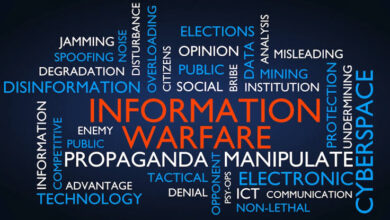
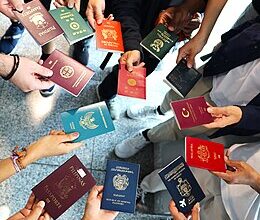

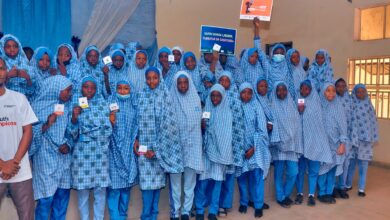
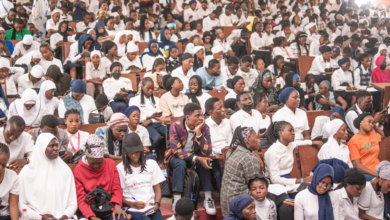
Hi, this is a comment.
To get started with moderating, editing, and deleting comments, please visit the Comments screen in the dashboard.